The intellectual right contemplates an 'American Caesar'
Jan. 6 was a badly planned rehearsal for the real deal

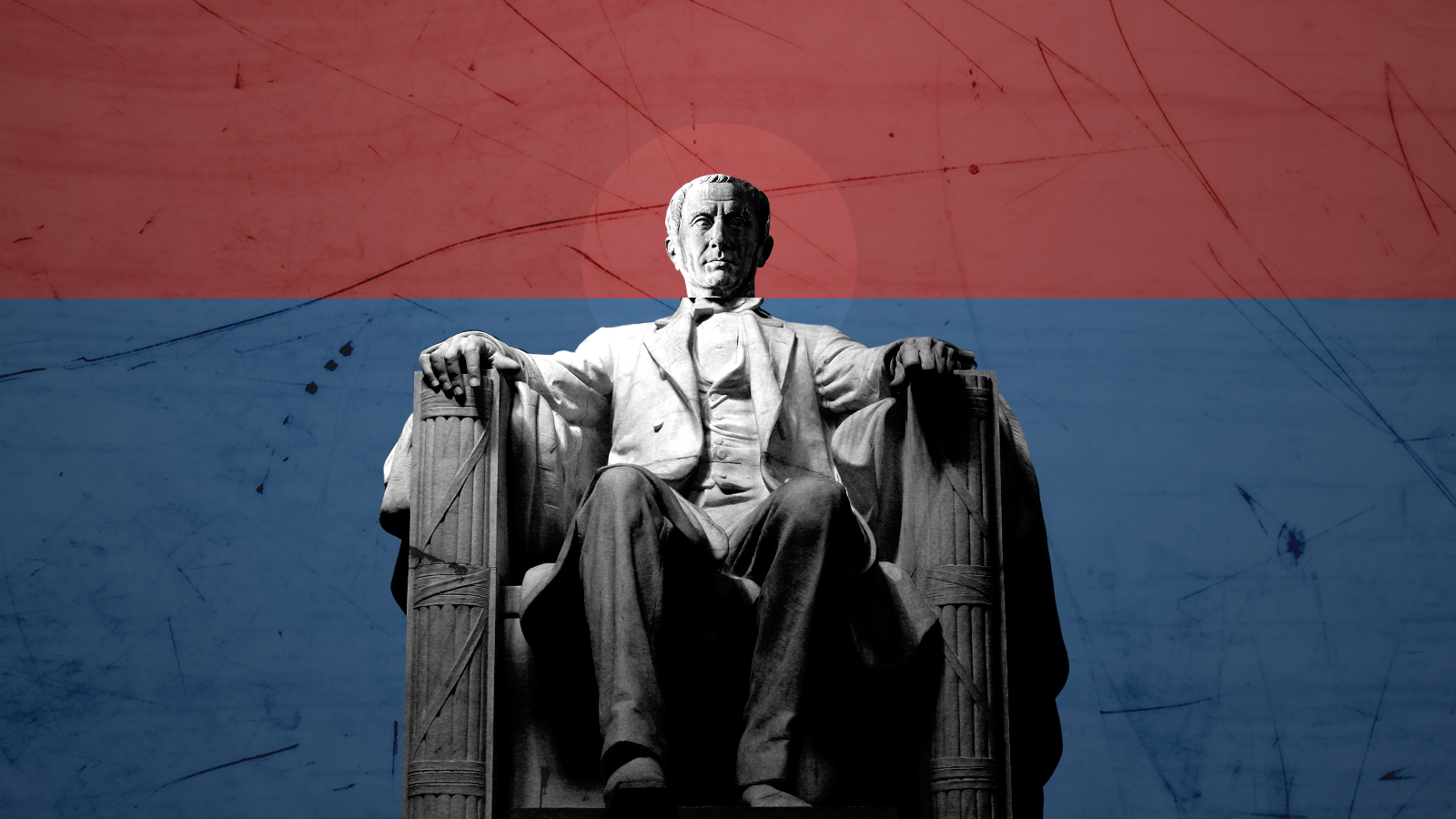
How does ideological change happen? Why do certain political ideas and possibilities that appear outrageous and even unthinkable at one moment in history come to be considered options worth taking seriously? What causes the Overton window to shift dramatically in one direction or another?
The answer has something to do with the dynamics of partisan coalitions. To cite a fairly anodyne example, Ronald Reagan took over the Republican Party in 1980 by expanding the GOP's appeal to the right as well as to the center-left. Those who supported Gerald Ford in 1976 were joined by conservative activists who had passionately favored Barry Goldwater in 1964, right-wing populists in the South and Midwest who had cast ballots for George Wallace in 1968, and the more moderate voters across the country who came to be called "Reagan Democrats." The result was broad-based support for deep tax cuts, sharply increased defense spending, and amped up confrontation with the Soviet Union — a synthesis of positions that seemed to be a non-starter just a few years earlier but which, thanks to Reagan's political skills and their intersection with contingent changes in political culture, became a stable ideological and electoral configuration of the GOP for the next 36 years.
The GOP has shed a lot of voters (as a share of the electorate) since its high-water mark in 1984. But with the rise of Donald Trump, the shape of the party's coalition also began to change. Some of the shift has been class-based, with white and Latino voters lacking a college degree flocking to the Republican Party and highly educated urban and suburban voters fleeing it.
The Week
Escape your echo chamber. Get the facts behind the news, plus analysis from multiple perspectives.

Sign up for The Week's Free Newsletters
From our morning news briefing to a weekly Good News Newsletter, get the best of The Week delivered directly to your inbox.
From our morning news briefing to a weekly Good News Newsletter, get the best of The Week delivered directly to your inbox.
But Trump also actively courted the right-wing fringe — the militia movement, quasi-paramilitary groups like the Proud Boys, neo-Nazis, overt racists, and outright xenophobes. These voters are a tiny portion of the party, but they punch above their weight, as we learned on Jan. 6, when a small handful of these extremists took the lead in initiating the mayhem and violence on Capitol Hill that afternoon while most of the intruders simply followed along rather cluelessly. (This point, along with much else in this column, is elaborated with depth and insight in the "Aftermath of January 6th" episode of the consistently excellent Know Your Enemy podcast.)
With most Republican officeholders and media personalities refusing to condemn the actions of the insurrectionary mob that invaded the Capitol to stop congressional certification of the 2020 election results — or Trump's decisive role in inciting that mob — and some of them instead endorsing an evidence-free conspiracy involving the "deep state" and the FBI, the GOP has verified that the Overton window has shifted sharply to the right. What would have until quite recently been considered unacceptable forms of political dissent have been legitimized. That's how the once unthinkable becomes a new normal.
A parallel process of line-shifting has been unfolding among conservative intellectuals, most of whom responded to the launch of Trump's presidential campaign six years ago with a mixture of disgust and incredulity. The dismissal didn't last. While many shifted to the center and refused to endorse Trump's hostile takeover of the party, plenty of others went along with it, adjusting their prior positions to bring them into alignment with the nominee on policy and attitude. No commentator did so with more enthusiasm or popular impact than Michael Anton.
A former director of communications for New York Mayor Rudy Giuliani (where he was briefly my boss) and former speechwriter for Secretary of State Condoleezza Rice, Anton penned the most notorious and rhetorically scalding case for supporting Trump. Published in early September 2016 in the Claremont Review of Books online, "The Flight 93 Election" portrayed Trump as a final, last-ditch opportunity for conservatives to wrest control of the country back from those (like Hillary Clinton) who aimed at nothing less than its thoroughgoing destruction. Rush Limbaugh paid tribute to the power of the argument (and amplified it for a vastly larger audience) by reading the essay aloud, paragraph by paragraph, on his radio show. In doing so, Anton, with Limbaugh's help, gave legions of Trump-skeptical conservatives permission to vote, even to express outright enthusiasm, for the untested right-wing populist.
A free daily email with the biggest news stories of the day – and the best features from TheWeek.com
After Trump's victory, Anton went on to serve the new president on the National Security Council. That lasted a little more than a year. Once he had left the White House, Anton returned to writing and speaking publicly in defense of Trump and in favor of his re-election. Two months before the 2020 vote, he predicted an attempted "coup" from the left if Democrat Joe Biden didn't prevail. When events unfolded in precisely the opposite way — with Trump losing the vote, refusing to accept the result, and attempting a hapless coup of his own to stay in power — Anton said nothing to acknowledge either the irony or the error. Quite the opposite, in fact. In the months since Trump left office, Anton has been doing his best to throw open the doors of the conservative intellectual world to ideas once considered far too extreme for American politics.
How extreme? So extreme that in late May, Anton set aside nearly two hours on his Claremont Institute podcast ("The Stakes") for an erudite, wide-ranging discussion with self-described monarchist Curtis Yarvin about why the United States needs an "American Caesar" to seize control of the federal government, and precisely how such a would-be dictator could accomplish the task.
With this conversation, Anton seems eager to shift the Overton window far beyond anything resembling liberal democracy. In its place, he would substitute an elaborate, historically and philosophically sophisticated justification for tyranny.
It's important right at the outset to make a few things clear about the Anton-Yarvin conversation. First, Anton doesn't explicitly endorse Yarvin's most outlandish ideas, which blend a far-right love of unlimited executive power with the techno-utopianism of Silicon Valley. (Yarvin created the Urbit digital platform and co-founded the tech company Tion, while also gaining considerable notoriety with the alt-right blog "Unqualified Reservations," written under the pen name Mencius Moldbug.) In fact, at several points Anton goes out of his way to declare in a tone of mock seriousness that as someone affiliated with the Claremont Institute, which has long advocated for a return to the principles of the American founding (including the Declaration of Independence's denunciations of monarchical tyranny), he can't stand behind Yarvin's sympathy for dictatorship. Yet it's also true that at no point does Anton offer a substantive critique of Yarvin's arguments and assertions. He merely expresses pragmatic or tactical objections, as if the primary fault in Yarvin's ideas is that they are unrealistic.
Then there's the matter of terminology. I have described Anton's conversation with Yarvin as helping to shift the Overton window away from liberal democracy and toward a defense of tyranny. Yet this isn't how either man understands the American present. Rather, they agree early on in the podcast (around minute 24) that the current American "regime" is most accurately described as a "theocratic oligarchy" in which an elite class of progressive "priests" ensconced in the bureaucracies of the administrative state, and at Harvard, The New York Times, and other leading institutions of civil society, promulgate and enforce their own version of "reality." Anton and Yarvin treat this assertion as given and then proceed to talk through how this theocratic oligarchy might be overturned. (One of their substantive disagreements concerns how long this regime might last if it's not directly challenged. Anton is hopeful it will collapse of its own incompetence and corruption, while Yarvin thinks the current "clown world" could continue onward for decades or even a century, with the United States slowly decaying into something resembling a Third World country.)
Once the conversation really gets going (around minute 45), Yarvin makes clear that he has a highly idiosyncratic take on American history. In his view, roughly every 75 years, a "Caesar" seizes dictatorial powers and institutes "substantive regime changes." George Washington did this in 1789. Abraham Lincoln did it again in 1861. And FDR did it last in 1933, speaking in the closing passages of his First Inaugural Address about the national emergency of the Great Depression and the need to wield unprecedented government power to combat it, which he did with the New Deal. The U.S. today is overdue for its next political transformation — one that would settle the country's "cold civil war" from above.
Yarvin's top choice to become the next American Caesar is Elon Musk, though both men acknowledge that he's constitutionally ineligible for the role because he was born in South Africa. This provides an occasion for them both to joke about how great it would be for him to run, win, and demand to be made president anyway, in defiance of the Constitution. (Anton makes sure to clarify that their jovial chit-chat about flagrantly disregarding the letter of the Constitution is "not an endorsement" of actually doing so. Later on, they likewise joke about how great it would have been for Trump to declare himself the personal embodiment of the "living Constitution.")
But what exactly is Yarvin proposing and Anton entertaining here? Is it nothing more ominous than a New Deal from the right? As the conversation unfolds further, beginning around an hour and twenty minutes into the podcast, it becomes clear that Yarvin has something much more radical in mind (even if his peculiar constellation of assumptions prevent him from recognizing just how extreme it is).
The trick, for Yarvin, is for the would-be American Caesar to exercise emergency powers from day one. How? Caesar should run for president promising to do precisely this, and then announce the national emergency in his inaugural address, encouraging every state government to do the same. Taking advantages of "ambiguities" in the Constitution, he will immediately act to federalize the national guard around the country and welcome backup from sympathetic members of the police (who will wear armbands to signal their support for Caesar).
When federal agencies refuse to go along, Yarvin suggests, Caesar (whom he now begins referring to as "Trump") will use a "Trump app" to communicate directly with his 80 million supporters on their smart phones, using notifications to tell them that "this agency isn't following my instructions," which will prompt them to rally at the proper building, with the crowd "steered around by a joystick by Trump himself," forming a "human barricade around every federal building, supporting Trump's lawful authority." Where maybe 20,000 people stormed the Capitol on Jan. 6, millions responding to the Trump app would be much more effective — a modern-day version of the paramilitary groups that ensured Lincoln's safety during the hard-fought, dangerous 1860 campaign for president that preceded the Civil War (and the president's subsequent suspension of habeas corpus and shuttering of hundreds of newspapers).
When Anton asks how Trump-Caesar should respond to Harvard, The New York Times, and the rest of the theocratic oligarchy blaring air-raid sirens about the imposition of dictatorship, Yarvin indicates that it would be essential to "smash it" with one blow. To suggest that Caesar should be required to deal with "someone else's department of reality is manifestly absurd." Going on, Yarvin explains that "when Caesar crosses the Rubicon, he doesn't sit around getting his feet wet, fishing. He marches straight across the Rubicon" and uses "all force available." Once that happens, the whole world can be "remade."
The podcast concludes with Anton quoting another Claremont writer (Angelo Codevilla) on how Trump dropped "the leadership of the deplorables," which is waiting to be picked up by someone "who will make Trump seem moderate." Yarvin responds approvingly with a quote by Serbian dictator and indicted genocidal war criminal Slobodan Milošević, who said the goal should be that "no one will dare to beat you anymore."
Defenders of Anton, Yarvin, and the Claremont Institute will say that this thoroughly appalling discussion was just that — some casual talk, idle musings, a fantasy disconnected from reality. Yet fantasies are outgrowths of our imaginations and hopes, and they help set our expectations, including our conception of what is possible and desirable in politics.
The indisputable fact is that a leading and longstanding conservative institute in the United States hosts a podcast by someone who served as a senior official in the presidential administration of a man who may run again for the nation's highest office in a few years. And on an episode of that podcast, this former official and his invited guest genially rehearsed arguments about why a future president would be justified in turning himself into a tyrant, and how he could set about accomplishing this task.
Which means that on the starboard side of American politics, the Overton window has now shifted far beyond the boundaries of democratic self-government to a place broadly coterminous with fascism.
Damon Linker is a senior correspondent at TheWeek.com. He is also a former contributing editor at The New Republic and the author of The Theocons and The Religious Test.
-
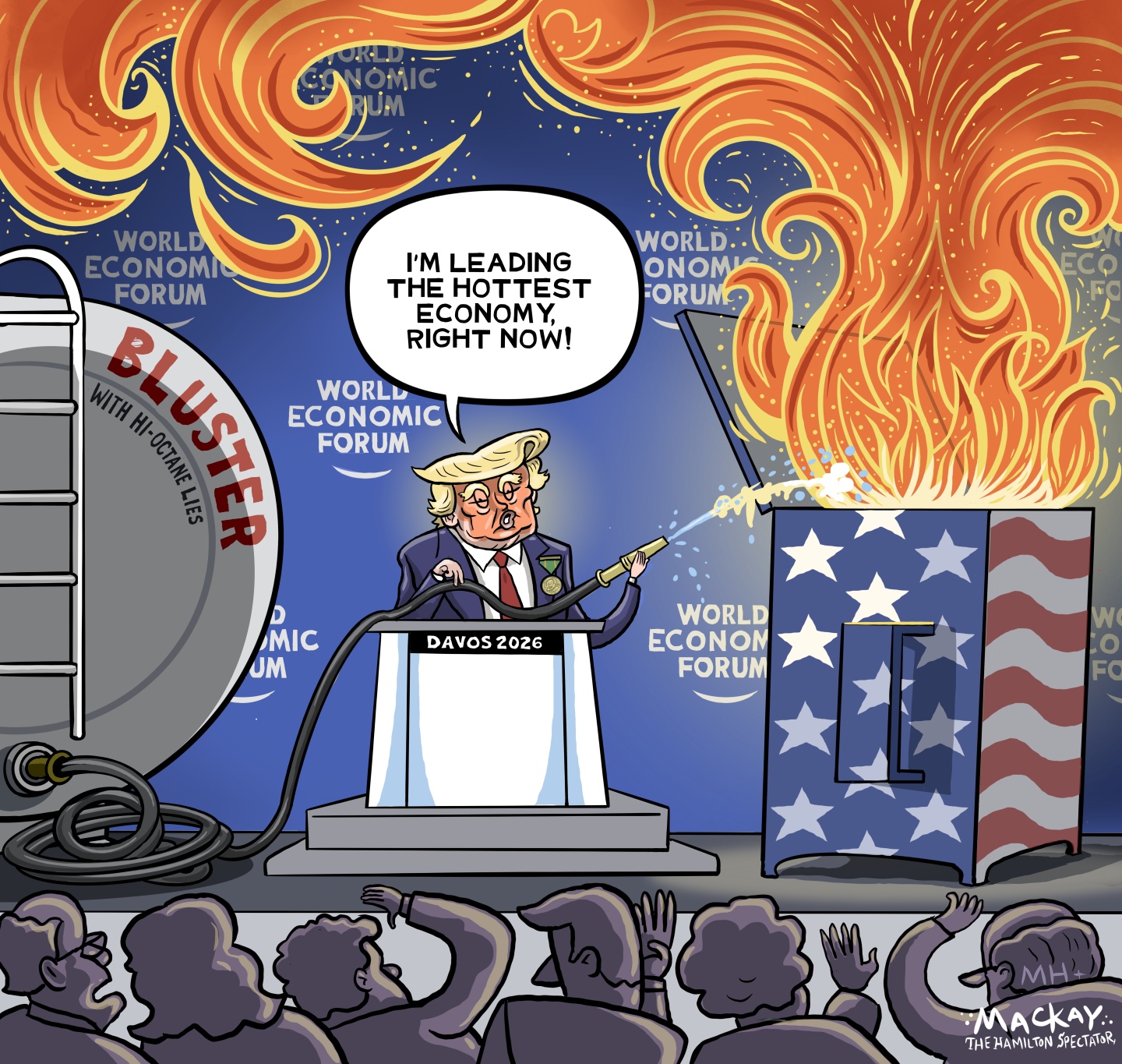 Political cartoons for January 25
Political cartoons for January 25Cartoons Sunday's political cartoons include a hot economy, A.I. wisdom, and more
-
 Le Pen back in the dock: the trial that’s shaking France
Le Pen back in the dock: the trial that’s shaking FranceIn the Spotlight Appealing her four-year conviction for embezzlement, the Rassemblement National leader faces an uncertain political future, whatever the result
-
 The doctors’ strikes
The doctors’ strikesThe Explainer Resident doctors working for NHS England are currently voting on whether to go out on strike again this year
-
 Trump’s ‘Board of Peace’ comes into confounding focus
Trump’s ‘Board of Peace’ comes into confounding focusIn the Spotlight What began as a plan to redevelop the Gaza Strip is quickly emerging as a new lever of global power for a president intent on upending the standing world order
-
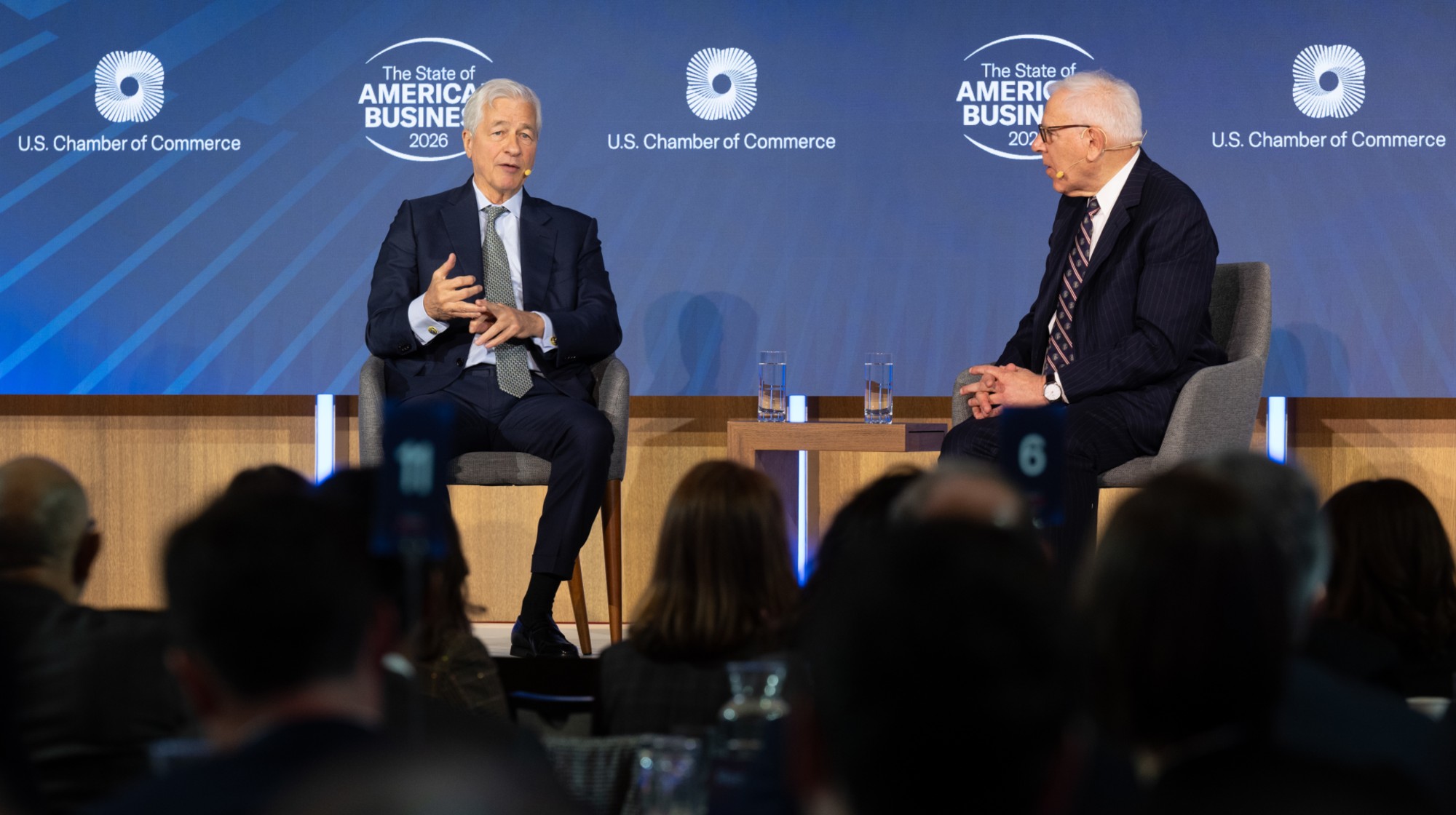 Trump sues JPMorgan for $5B over ‘debanking’
Trump sues JPMorgan for $5B over ‘debanking’Speed Read Trump accused the company of closing his accounts for political reasons
-
 ICE memo OKs forcible entry without warrant
ICE memo OKs forcible entry without warrantSpeed Read The secret memo was signed last May
-
 Halligan quits US attorney role amid court pressure
Halligan quits US attorney role amid court pressureSpeed Read Halligan’s position had already been considered vacant by at least one judge
-
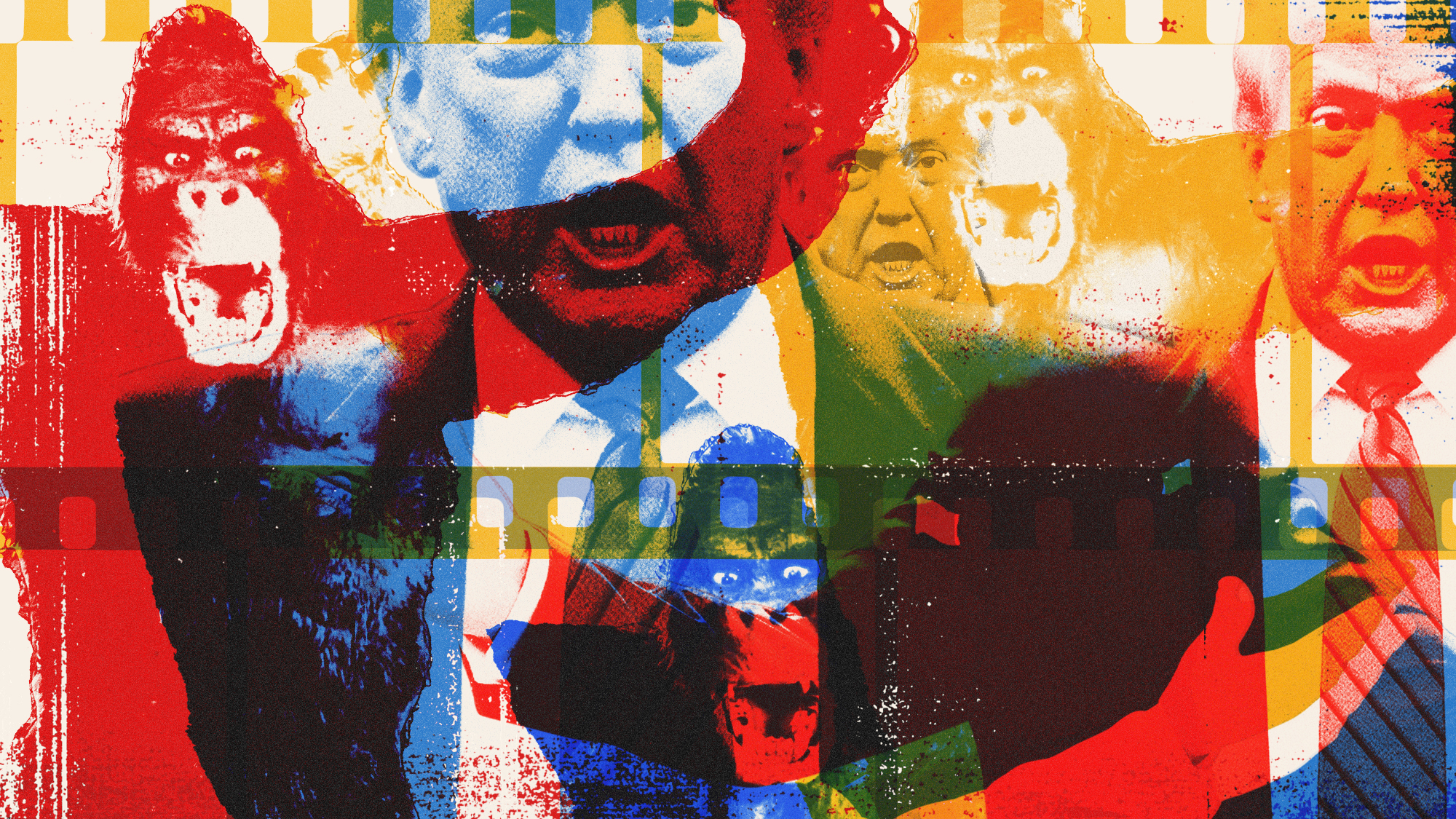 Can anyone stop Donald Trump?
Can anyone stop Donald Trump?Today's Big Question US president ‘no longer cares what anybody thinks’ so how to counter his global strongman stance?
-
 How Iran protest death tolls have been politicised
How Iran protest death tolls have been politicisedIn the Spotlight Regime blames killing of ‘several thousand’ people on foreign actors and uses videos of bodies as ‘psychological warfare’ to scare protesters
-
 Trump’s Greenland ambitions push NATO to the edge
Trump’s Greenland ambitions push NATO to the edgeTalking Points The military alliance is facing its worst-ever crisis
-
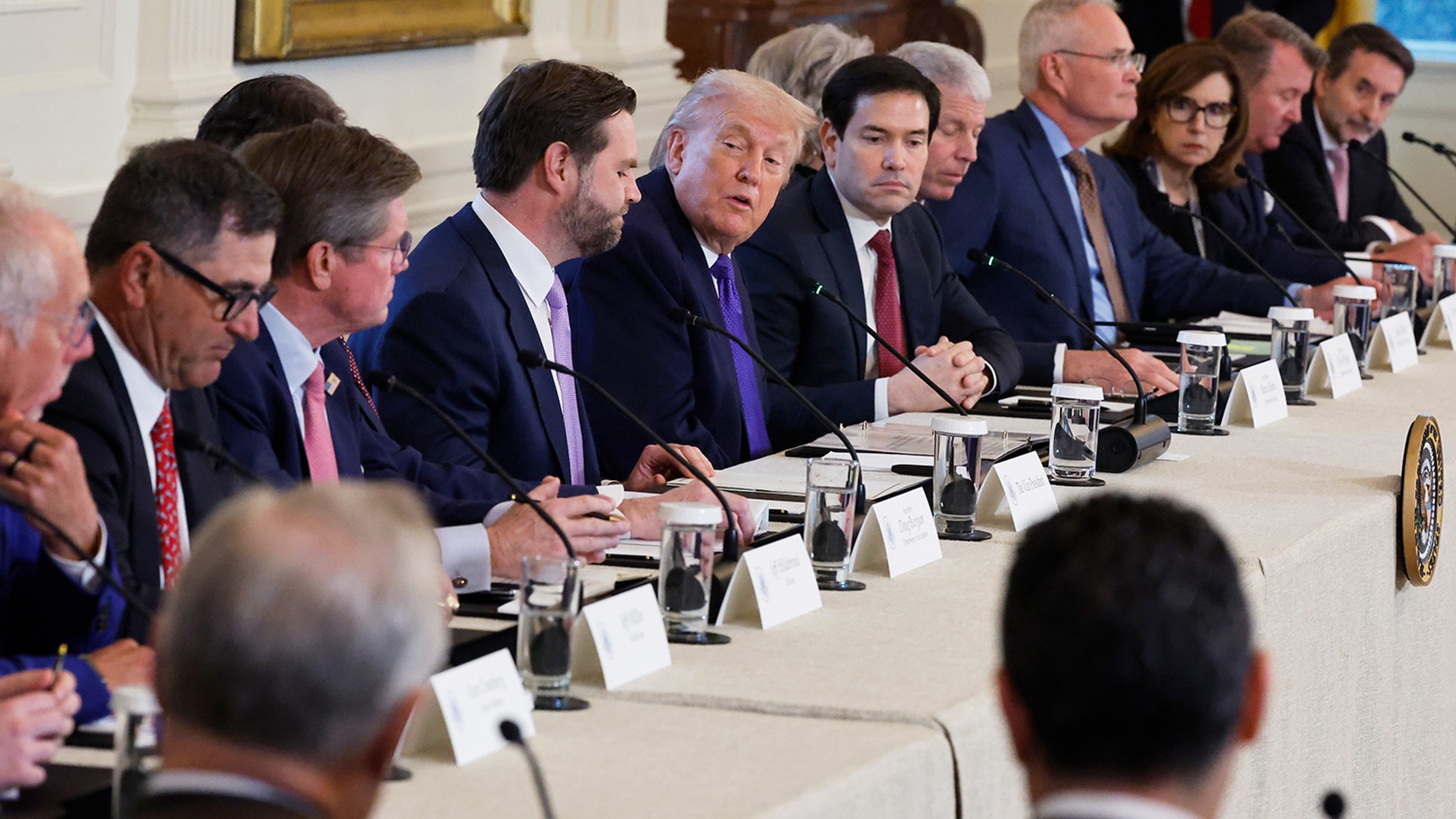 Venezuela: Does Trump have a plan?
Venezuela: Does Trump have a plan?Feature Oil and democracy are both on the table
